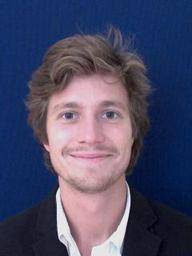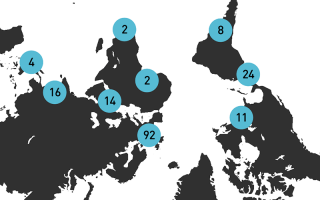Andreas recounts experiences of studying MSc Environment and Sustainable Development at the Development Planning Unit

Growing up I became increasingly aware of how alienated many city centres and their dwellers may be from whatever we define as nature, organic or green. From these conflicting realities, grew an idealistic motivation to challenge the environmental behaviour of citizens in their social systems.
In pursuit of my dreams, I completed my scientific foundation through an environmental B.Sc. at Lund University in Sweden, and better understood the behavioural side with Resource Economics as an exchange student at McGill in Canada.
I followed these academic experiences with internships at ICLEI and UNEP, where I was writing project proposals on Ecosystem Services for Poverty Alleviation (ESPA) and doing desk research on ‘Beyond GDP’. I was now aware of the biophysical symptoms and ‘panacea’ to current urbanising yet unsustainable lifestyles.
However, I found it hard to frame these development patterns in a logical way that justified this dichotomy. This is how the M.Sc. ESD at the DPU came into resonance with my aspirations, and would help me make sense of my ecological ‘rucksack’ in environmental discourses, by politicising, scoping, scaling, integrating and ‘unpacking’ it.
Beyond the growing knowledge I acquired to frame and contextualise environmental issues, through the MSc I developed a stronger commitment to listen to other perspectives on sustainable development. In fact, the capacity I deepened the most at the DPU was the ability to assess, understand, answer and collaborate with other people’s capacities in dealing with these same environmental problems.
First, through the group work and debates raised in the classes, where my comrades’ different international perspectives (or ‘rucksacks’) would clash, cross-fertilise and create a platform for mutual learning. Secondly, through the research fieldtrip to Ghana, I learnt that development can be achieved sustainably if all actors involved are fully aware of each other and their capacities.
Simply put, I learnt to assess others' capacities with the qualitative tools and critical thinking that was taught and provided to me as a young development practitioner at the DPU. These tools have given me the potential to lever a fairer development philosophy in the surge for environmental justice in the ‘global South’.
At the end of my DPU schooling I had the opportunity to join an interdisciplinary research project on understanding the urban metabolism. I was asked to interview, film and analyse 20 different UCL scholars’ perspectives on the subject. A unique thing about the DPU, despite its highly renowned scholars, is the accessibility to discuss with your teachers and the many open doors for collaborative projects whilst studying.
The network generated through the DPU is still very useful and has been recently updated through the ‘interactive map of ESD alumni’, an incredible tool where you can find the wide range of intriguing job opportunities seized by former ESD students.
Today, I am continuing to swing on the academic branch as a research assistant in Sweden back at Lund University, where I am exploring the urban ecology of cities, and identifying how nature can be invited back to them. For instance, how urban wetlands can bring biodiversity, recreation and clean water in the same basket as serving deprived communities to adapt to a changing climate. Moreover, lecturing on environmental problems to other youths at local high schools, gives me also the hope to be working on the root of the problem: us.
Finally, I am currently, on one hand, preparing a research plan for a Ph.D application assessing the potential of community-led micro-scale bio-gas generation from favelas organic waste at the University of Rio. On the other, I am participating on a project proposal for the Guggenheim’s Foundation regarding a Shepherd School in Tanzania for a displaced Maasai’s group, which would assess the capacity to reopen the book of nature that they have lost.
 Close
Close


